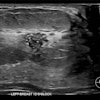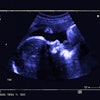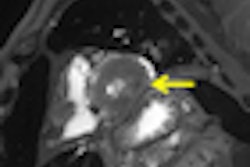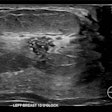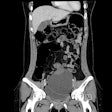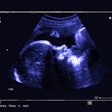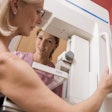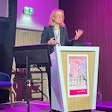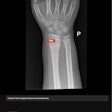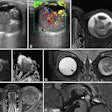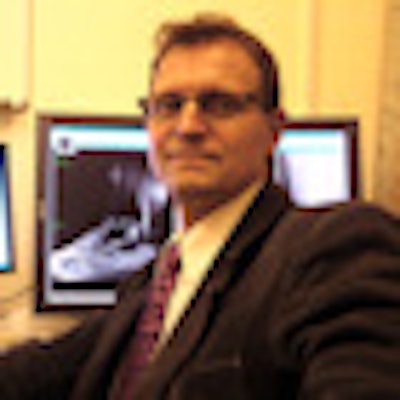
Each year about two dozen Hungarian radiologists spend between four and 12 weeks working as locum, or temporary, doctors in the U.K. The most popular areas are Greater London, Scotland, and South West England. Some are trying to top up their bank accounts by spending their summer holiday in a hospital, instead of on a beach in Mallorca, Spain, while others are enticed by the prospect of working in different places, cooperating with new people, adapting to the special needs of employers, and exploring new places as a tourist.
"After several hospitals, you may know the situation better than the locals, and you become a locum specialist," said Dr. Zsolt Tarján, associate professor of Semmelweis University Radiology Clinic in Budapest, who currently works in Hertfordshire, U.K. He started with sessions of a few weeks, and soon developed a taste for locum work.
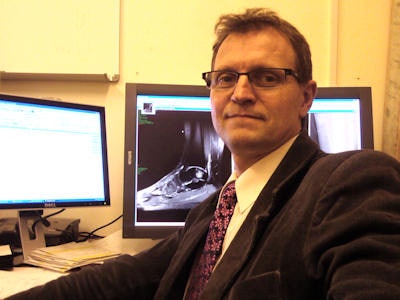 There is no prejudice against Hungarian doctors working in the U.K., according to Dr. Zsolt Tarján.
There is no prejudice against Hungarian doctors working in the U.K., according to Dr. Zsolt Tarján."Hungarian radiologists are recognized according to their skills. There is no prejudice against us. They don't care about the color of your skin, your religion, or the place where you come from. They assume you are native English, attended university in the U.K., know the routine abbreviations of every discipline, are familiar with the NHS [National Health Service] and its operations, and you have all the required knowledge, just like a consultant from Royal College of Physicians," he pointed out.
However, it is not always easy to cope with these expectations, especially in the beginning, when the adaptation process has just started.
"If you like meeting other people, exploring new cultures, and are open to the world, you can survive," said a young mammography expert, who has just returned to the U.K. to take up more work. "In a new culture, you can set up new connections with others, in your professional or private life, and it's easy to learn from these experiences. You can have Internet access everywhere, you can use Skype every day, but being far from your family, your friends is not easy, especially if something unexpected happens at home, and you have to run back."
Looking for an unbiased opinion on the subject, it seemed a good idea to ask the current president of the European Society of Radiology (ESR), Dr. András Palkó, who also happens to be Hungarian. He said that he has ambivalent feelings toward the migration of his fellow radiologists.
 Motivating Hungarian doctors more would significantly decrease financially driven migration, Dr. András Palkó said.
Motivating Hungarian doctors more would significantly decrease financially driven migration, Dr. András Palkó said.
"On the one hand, I am proud of my young Hungarian colleagues, and that their skills and knowledge enables them to find really interesting jobs, either as locum doctors or consultants. On the other hand, we can clearly see that the migration is faster than the capacity of the radiology education in Hungary, so we are facing a massive shortage of radiologists in the short term," he noted. "As the president of ESR, I do think that free movement of labor within the European Union is a real advantage for radiologists, reasoning our efforts to standardize European education and provide a European Diploma in Radiology."
According to our research among Hungarian locum doctors, the advantages of locum jobs far outweigh the drawbacks, due to the societal factors.
"At home, you know that working as a radiologist is the coolest job ever. Though other physicians and the whole society are not familiar with this fact!" said a Hungarian locum radiologist currently working in Wales. "Then you go out to Budapest airport, take the next plane, and arrive to London in two hours. Here you can really feel that being a radiologist is the coolest job ever. Radiologists are recognized by colleagues, physicians are appreciated members of society, there is no chance of feeling insecure -- this is completely different from in Hungary."
Among locum radiologists it is very hard to find any negative opinion of working in the U.K. One radiologist said it was "a superb feeling" to be able to afford a thick radiology textbook that he really wanted, and others also think the financial advantages justify the drawbacks of working abroad.
"Two years ago I went back to Hungary, and tried to find my way in the country, in my hometown," explained another experienced younger Hungarian radiologist who has spent a few years in the U.K. "Although it employs the latest technology, it turned out that I was too skilled for the radiology department of the county hospital, so I didn't get the consultant's job. If I did, my official salary would have reached a little more than 600 euros ($807 U.S.) monthly. I know that it isn't money alone that counts, and I don't really want to raise my children in a foreign country, far from their grandparents, but it seems the U.K. needs my expertise, while Hungary doesn't."
Can anything prevent Hungarian radiologists from working abroad?
"Fortunately, there are no official options within the EU to prevent radiologists from working outside of their home country," Palkó replied. "As a result of the political changes in the last two decades, there are no barriers at all for Hungarian radiologists. The only way against migration is to motivate them: If Hungarian society and health politics appreciate physicians better, it would significantly decrease the financially driven migration."
Peter Zöldi is the editor of radiologia.hu.
